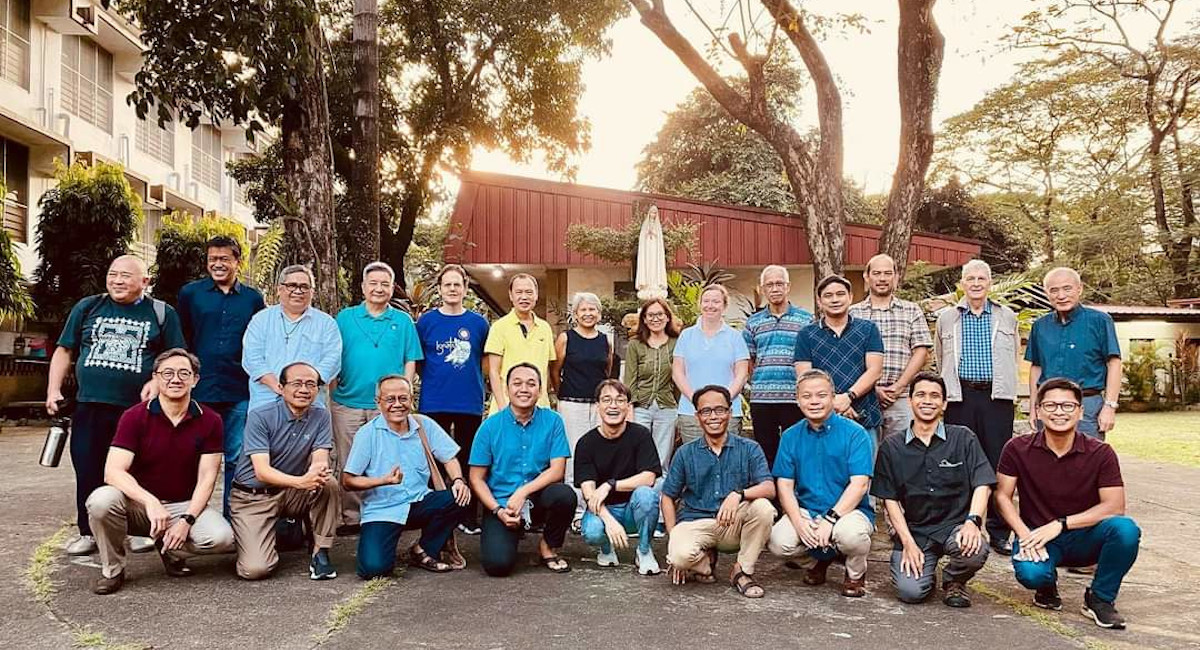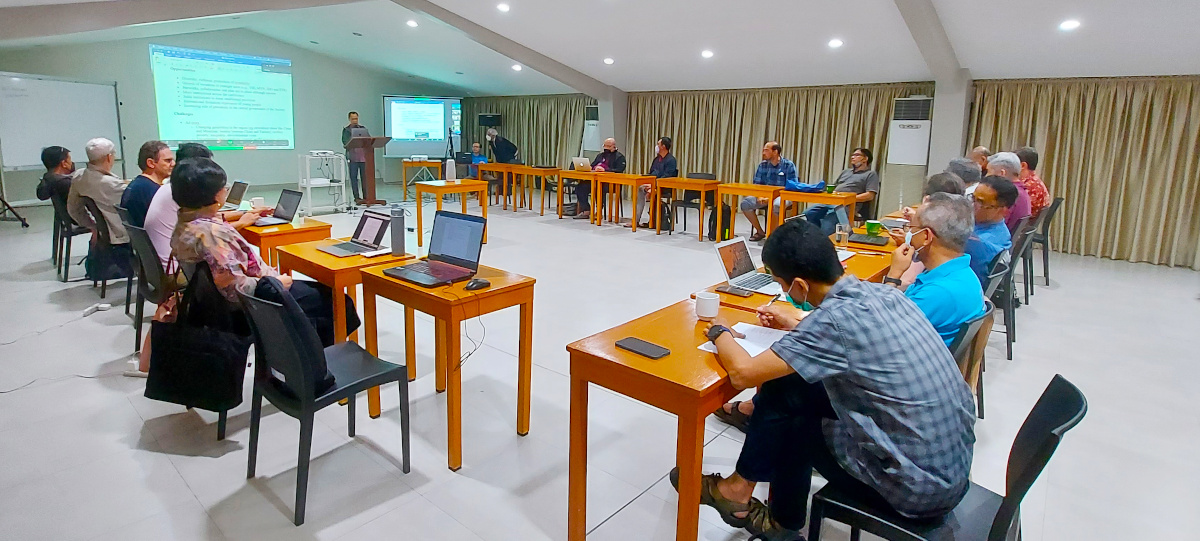 Diversity, communication, and collaboration were the oft repeated words at this week’s assembly of the heads of the secretariats and peer groups of the Jesuit Conference of Asia Pacific (JCAP). Known collectively as the Extended Consult, the group discerned how each one can help in moving the JCAP Plan forward, and the challenges and opportunities ahead.
Diversity, communication, and collaboration were the oft repeated words at this week’s assembly of the heads of the secretariats and peer groups of the Jesuit Conference of Asia Pacific (JCAP). Known collectively as the Extended Consult, the group discerned how each one can help in moving the JCAP Plan forward, and the challenges and opportunities ahead.
The meeting held over two days from 24 to 25 October proceeded at a relaxed pace with emphasis given to break-out discussions and spiritual conversations. Some 20 sectoral heads comprising Jesuits and lay partners travelled to the East Asian Pastoral Institute in Manila, while a few joined online from their own Jesuit communities or ministries across the Asia Pacific region.
Besides the sectoral reports, a big portion of the first day was devoted to strengthening the implementation of the JCAP Plan. The members of the assembly spent some time in quiet reflection before coming together in triads to share concrete suggestions on any of the 10 priorities outlined in the apostolic plan. There was an openness to respond to the invitation to participate in the flagship project, in including the conference plan in their own plans, and in looking closely at the priorities that need further push.
Reflecting on the tasks ahead, Fr Rene Javellana SJ noted: “We need to start looking at the younger Jesuits who really are the future.” The group recognised the need to communicate the plan to the smallest units, to synergise efforts across ministries and sectors, and to put in place mechanisms for collaboration. Related to this is the reactivation of the planning committee headed by the JCAP socius to act as an oversight body.
 The next day, the Extended Consult focussed on discerning the challenges and opportunities facing the conference in the next five years as preparations begin for the search for a new JCAP president. Once again, the assembly spent a good amount of time in quiet reflection before coming together in small groups for spiritual conversations.
The next day, the Extended Consult focussed on discerning the challenges and opportunities facing the conference in the next five years as preparations begin for the search for a new JCAP president. Once again, the assembly spent a good amount of time in quiet reflection before coming together in small groups for spiritual conversations.
Frequently, the diversity and richness that characterise JCAP was cited as an opportunity. There are many established ministries and works, newer networks are emerging, and good progress is being made in the JCAP Plan. Many pointed out the international formation experience of young Jesuits in the region as a valuable asset of the conference. Since the region profiles are uneven, in some places vocations are growing while in others they are declining, they identified the need to share resources and explore creative ways of collaboration, taking in the possibility of consolidation given fewer personnel and greater work to do.
The group also noted the volatile geopolitical situation of the world and the rapidly changing context of Asia Pacific, notwithstanding the issues of poverty, inequality, environmental crisis, uncertainties in the post-pandemic era, increasing secularisation, and the mental health problems among young people.
Given this context, the assembly acknowledged that not one person can have all the qualities of an ideal leader, but what is essential is having a strong team to complement the leadership. In this sense, the Extended Consult was reminded that they are sharers in Christ’s mission, and everything depends on God.
Nowhere was this more emphasised than in the Gospel reading on the parable of the mustard seed at the closing Mass. The mustard seed is a proverbial image for something really, really small but holds within itself the potential to grow inexorably, much like this small band of men and women collaborators coming together for a shared purpose. Ultimately, it is God who is at work, and it is God who will bring to perfection the good work He has begun.

